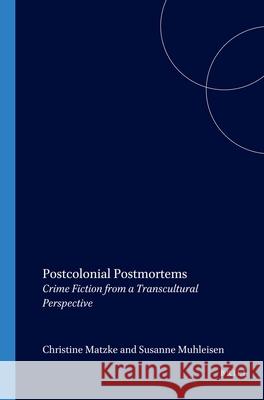Postcolonial Postmortems: Crime Fiction from a Transcultural Perspective » książka
Postcolonial Postmortems: Crime Fiction from a Transcultural Perspective
ISBN-13: 9789042020146 / Angielski / Miękka / 2006 / 337 str.
Recent crime fiction increasingly transcends national boundaries, with investigators operating across countries and continents. Frequently, the detective is a migrant or comes from a transcultural background. To solve the crime, the investigator is called upon to decipher the meaning(s) hidden in clues and testimonies that require transcultural forms of understanding. For the reader, the investigation discloses new interpretive methods and processes of social investigation, often challenging facile interpretations of the postcolonial world order. Under the rubric 'postcolonial postmortems', this collection of essays seeks to explore the tropes, issues and themes that characterise this emergent form of crime fiction. But what does the 'postcolonial' bring to the genre apart from the well-known, and valid, discourses of resistance, subversion and ethnicity? And why 'postmortems'? A dissection and medical examination of a body to determine the cause of death, the 'postmortem' of the postcolonial not only alludes to the investigation of the victim's remains, but also to the body of the individual text and its contexts. This collection interrogates literary concepts of postcoloniality and crime from transcultural perspectives in the attempt to offer new critical impulses to the study of crime fiction and postcolonial literatures. International scholars offer insights into the 'postcolonial postmortems' of a wide range of texts by authors from Africa, South Asia, the Asian and African Diaspora, and Australia, including Robert G. Barrett, Unity Dow, Wessel Ebersohn, Romesh Gunesekera, Kazuo Ishiguro, Sujata Massey, Alexander McCall Smith and Michael Ondaatje.











